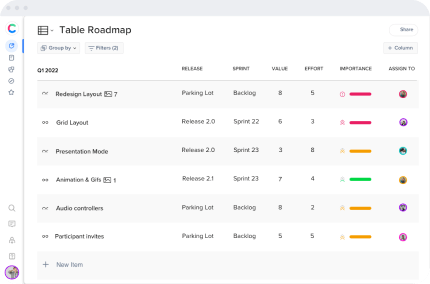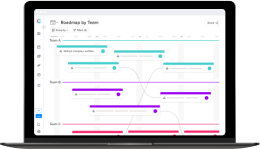What is a cpo in business
CPO is an acronym for Chief Product Officer and is the corporate title given to the person in charge of all product-focused activities and initiatives. As a senior company executive, the CPO leads a multi-department product management team tasked with realizing high-value products for the company and its customers, i.e., products with a high ROI and a high value for money.
Scope of a CPO’s Oversight Authority
The CPO’s oversight authority within large business organizations extends from production/manufacturing to post-launch product management. In effect, the occupant of this increasingly crucial corporate position oversees various product-oriented departments, including:
● Production, which is concerned with the manufacture/creation of the various products a company offers customers
● Customer Relations is the department involved in collecting, interpreting, and utilizing user feedback on different product offerings, i.e., first-hand user experiences, user expectations on product features, product use complaints, etc.
● Design and Development, the department involved in the creation of new high-value products for a company
● Marketing, which is tasked with developing and implementing user-focused strategies that promote product awareness and adoption
● Analytics, which is charged with the collection, interpretation, and utilization of objective real-world product data, e.g., branch-specific product sales, niche-specific product market shares, etc
Roles of a CPO
The primary duties and responsibilities of a CPO in a business span the breadth of this position’s oversight authority within the organization. These roles include:
● Staying up-to-date on customers’ needs, expectations, and preferences in all the product segments a company operates. Achieving this goal typically entails liaising with customer relations and analytics departments heads.
● Overseeing the utilization of customer-focused knowledge in prioritizing, developing, and implementing effective product-specific strategies that promote product awareness and adoption, e.g., availing a native software solution as a web-based application to ensure every customer enjoys a uniform feature-rich and platform-free user experience.
● Providing leadership on the resolution of outcomes that adversely affect product offerings, e.g., authorizing and overseeing the implementation of a re-branding initiative meant to address the poor/stagnant sales performance.
● Jointly supervising the recruitment of new employees into the various product-centric departments falling under the CPO, from production to post-launch product management.
● Propelling the design, innovation, development, and realization of new products targeting a new market segment or an existing customer base, e.g., unveiling a new lower-priced accounting software package that adequately caters to the specific needs of SMEs( Small-to-Medium Enterprises)
● Ensure a conducive work environment that favors harmonious collaboration between the different departments falling under the CPO’s docket, i.e., eliminating procedural red tape that curtails inter-departmental information transfer in all product-centric initiatives and activities
In retrospect, the office of the CPO is the logical outcome of a business’s commitment to realizing five essential product-focused objectives successfully. These product-oriented organizational functions are Product Vision, Product Innovation, Product Design, Product Management, and Product Marketing. Undoubtedly, the broad overall oversight authority of a CPO is invaluable in the long-term success of a business venture.


